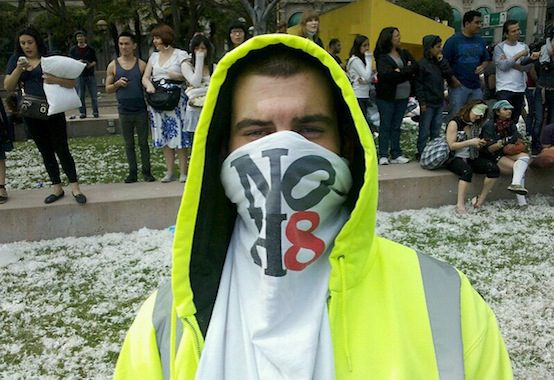The Perils of Workplace Purges

Two organizations stumbled into controversy this week over employment and gay marriage. World Vision, a Christian organization that provides humanitarian aid, announced it would hire staff in gay marriages (previously, this was a violation of the employee code of conduct) and then, two days later, reversed the decision. Meanwhile, at Mozilla, the open source technology company best known for the Firefox web browser, the promotion of co-founder and CTO Brendan Eich to CEO drew criticism, since Eich had made a $1000 donation in support of Proposition 8 in 2008.
Evangelical leader Franklin Graham and Assemblies of God General Superintendent George O. Wood immediately called for boycotts of World Vision after its initial announcement. Mozilla faced calls for boycotts as well, as a team of gay web developers pulled their applications from Mozilla and called for others to follow suit “until Brendan Eich is completely removed from any day-to-day activities at Mozilla.” Eich posted a reply to criticisms on his blog that made no reference to the donation or his personal beliefs but expressed his “sorrow at having caused pain” and commitment to inclusiveness.
These boycotts are intended to get a company to exclude some people from the workforce, not to change the products a company makes or what they do with their money. Consumers have the right to stop donating or buying for any reason they choose, but Pascal-Emmanuel Gobry doubts that the people lashing out against World Vision have thought out the consequences of their position:
Imagine every business is a “Christian” business (and that’s the end goal, isn’t it?) and has this policy. So when you’re in a committed same-sex relationship, the outcome is that you…don’t…work? Anywhere? Never mind the cruelty, how is this supposed to get anyone to repent of anything?
Gobry is reluctant to use employment for ideological coercion, since, as a Catholic, he’s more interested in converting the enemy than suppressing them. If the gay rights movement wants to change Brendan Eich’s mind, it’s to their advantage to keep him enmeshed in mainstream culture; after all, gay friends and acquaintances are one of the strongest predictors of support for same-sex marriage.
Balkanized businesses, which only hire employees or leaders that are politically palatable to their donors and customers aren’t economically or socially efficient. Instead of creating weak-tie relationships across ideological divides, they segregate people who disagree, fostering a fear of contamination by association. This exclusionary approach raises the stakes of political conflict dangerously high. When the losing side of a debate is blacklisted, all disputes become wars of annihilation. 
When Eich donated to Proposition 8, his state was split on the issue; the measure passed by a 4.5 percent margin. If, less than a decade later, the losers of that fight are unemployable, the next group on the losing side of a historical shift has every reason to fight dirtier, while time is still on their side.
Or, for people who plan to stay in the public eye, political activism could start to seem like a risky bet. Ars Technica‘s coverage of Eich suggests he went out on a limb when “he made the choice to spend money toward a political aim” and shouldn’t be surprised to find that his actions have consequences.
But neither side benefits from policing orthodoxy as tightly as these boycotts would do. World Vision made its policy shift in the service of this kind of neutrality; since some of the churches it worked with and the states it operated in recognize gay marriage, World Vision would respect, but not praise, their policies. That turned out to be unacceptable to its donors, who saw anything less than exclusion as tacit endorsement.
A healthy body politic requires that there be room to be wrong and still belong to normal society and commerce. A society that won’t live together can’t learn from each other.